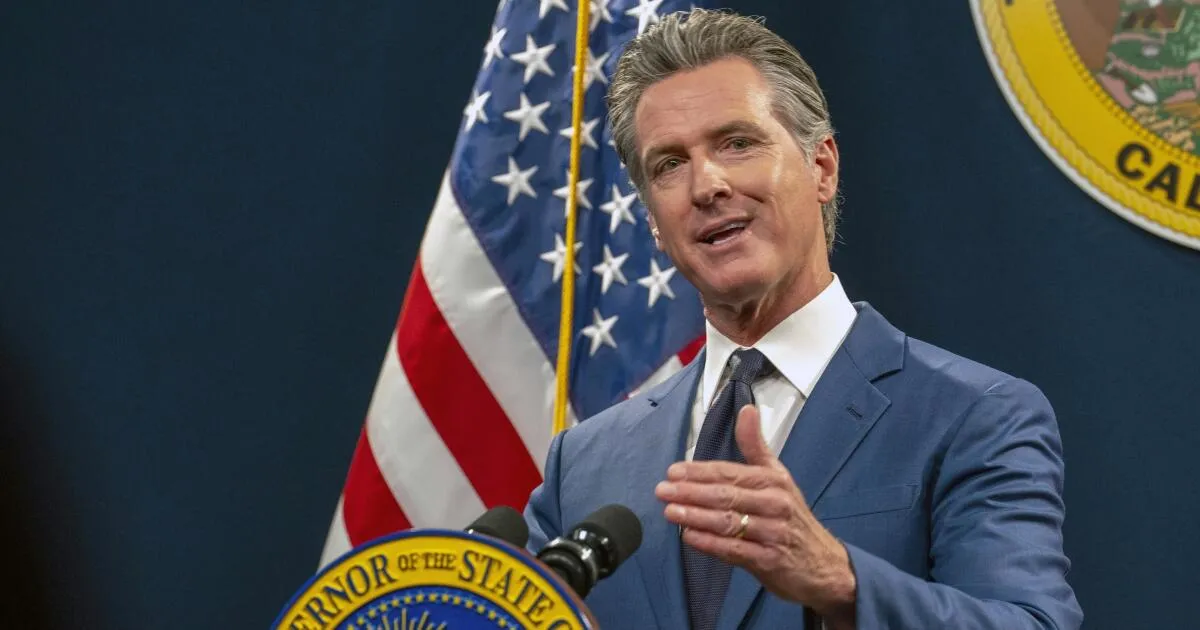
In a significant shift, Governor Gavin Newsom has unveiled his revised budget proposal for the 2025-26 fiscal year, which notably alters his previous commitment to provide free healthcare coverage to all low-income undocumented immigrants. As California braces for challenging economic times and rising costs, the governor's office indicates that changes are necessary to address the state's fiscal realities.
The budget plan, set to be released late Wednesday morning, introduces a requirement for all undocumented adults to pay a $100 monthly premium to receive Medi-Cal coverage. This adjustment aims to alleviate the financial burden on the state while also potentially reducing the number of participants in the program. Starting January 1, the state will also block all new adult applications for Medi-Cal, a move designed to manage the skyrocketing costs associated with the program.
By implementing these changes, the state anticipates saving a combined $5.4 billion through the 2028-29 fiscal year. However, the specifics on cost savings for the upcoming fiscal year, which begins on July 1, were not detailed in the proposal. The governor's office is expected to project a budget deficit for California, largely driven by higher-than-expected Medi-Cal costs and increasing shortfall estimates for subsequent years.
In the current budget year, Governor Newsom and lawmakers have already approved a $2.8 billion appropriation and secured a separate $3.4 billion loan to cover additional Medi-Cal expenses through June. The rising costs of the program have drawn criticism from Republican lawmakers, who argue that the financial strain is forcing Democrats to reconsider the extent of coverage provided to immigrants.
A recent poll indicates a significant portion of California voters supports offering free healthcare to undocumented children, with just over half in favor of extending coverage to eligible immigrants aged 50 and above. Additionally, a plurality of 49% of voters expressed support for providing healthcare to adults aged 18 to 49.
Medi-Cal, California's version of the federal Medicaid program, provides healthcare coverage to eligible low-income residents. Just a year ago, California became the first state in the nation to extend healthcare access to all income-eligible immigrants, following an expansion approved by Governor Newsom and the Democratic-led Legislature. This expansion built on a previous initiative by former Governor Jerry Brown, who signed a bill in 2015 to offer Medi-Cal coverage to all children under 19.
Under Newsom's multiyear plan, Medi-Cal coverage was progressively expanded to include all eligible immigrants, with the initiative starting in 2020 and expected to conclude in 2024. However, California now faces a budget shortfall, adding to the $27.3 billion in financial remedies already agreed upon for the 2025-26 budget, which includes $16.1 billion in cuts and a $7.1 billion withdrawal from the state’s rainy day fund.
This budget shortfall marks the third consecutive year that Governor Newsom and state lawmakers have been compelled to make spending reductions after committing more funds to programs than the state can sustain. Poor financial projections, the high costs associated with Democratic policy promises, and a hesitance to implement long-term cuts have all contributed to the state's fiscal challenges. As Governor Newsom continues to highlight California's status as the fourth-largest economy globally, the struggle to balance the budget remains a pressing issue for his administration and the state’s future.